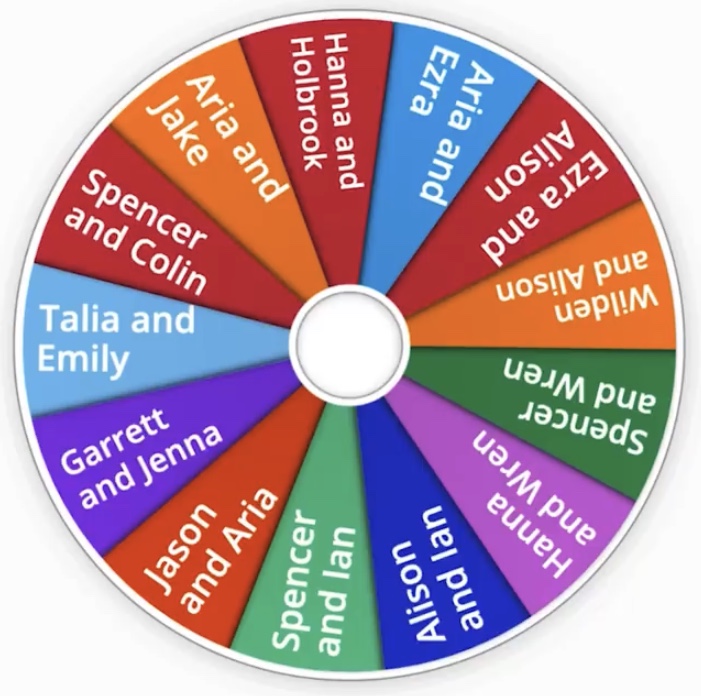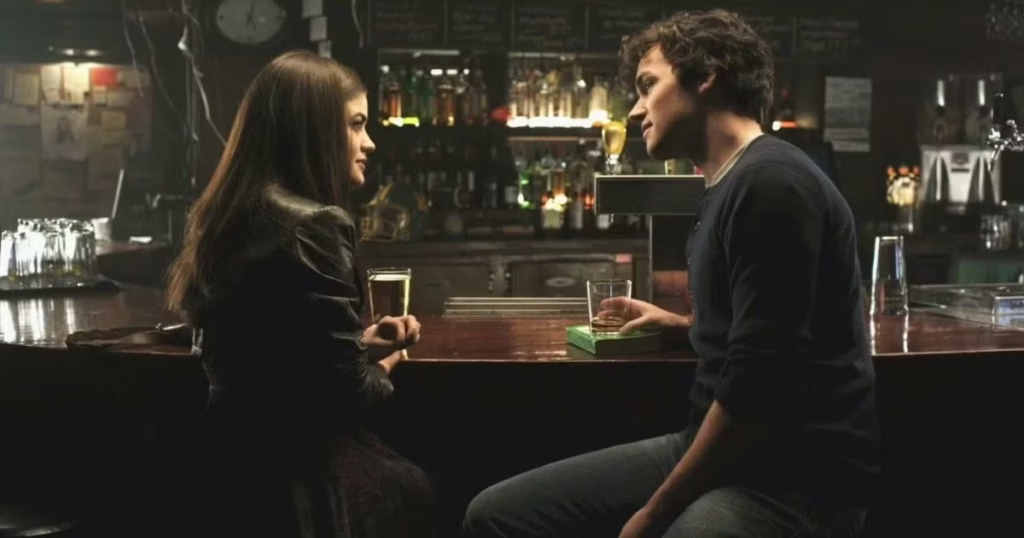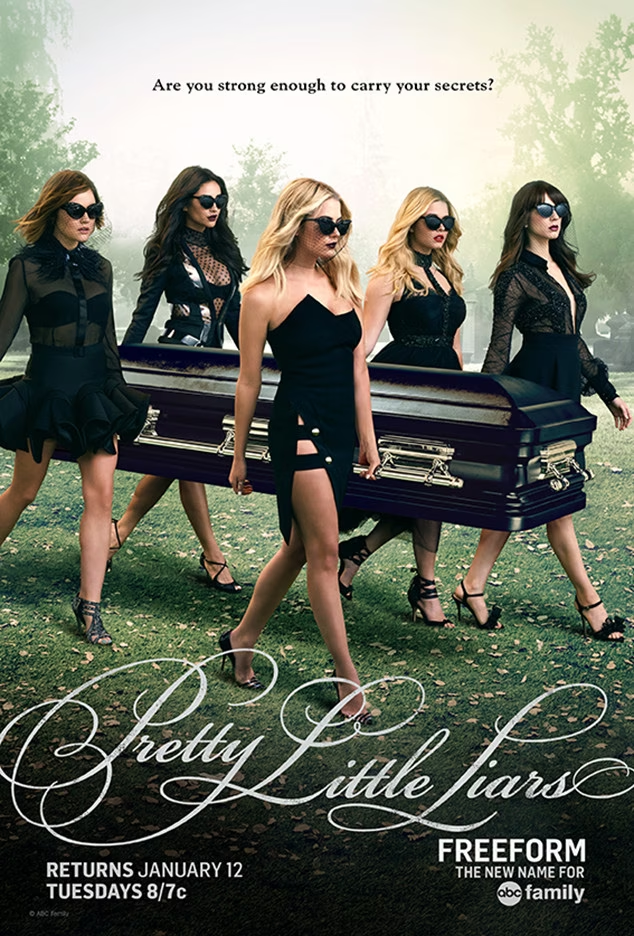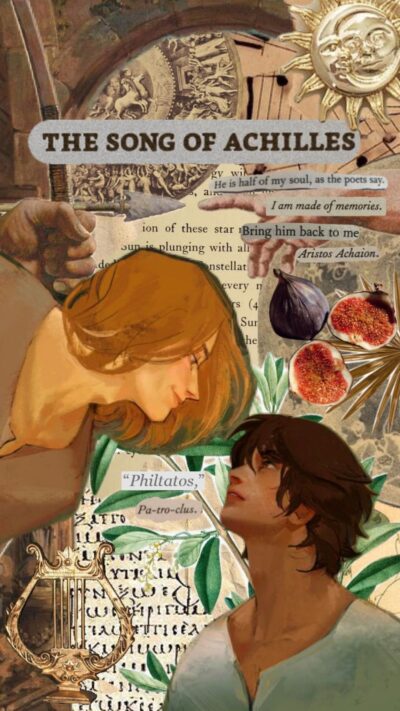When I watched the television series Pretty Little Liars about a year ago, something stuck out to me more than the intricate plot and major reveals—the prominence of adult-minor romantic and sexual relationships. While these types of relationships have been portrayed in many stories, the show sweeps over the negative implications and shines them in a romantic light.
The show follows four high-school girls who begin receiving blackmail texts after their friend Allison disappears/is “murdered.” Throughout the seven seasons, all five main characters had at least one inappropriate relationship with adults while they were underage, as young as 14 years old.

Describing My Experience
The most prominent inappropriate relationship that lasts throughout the series is between Ezra and Aria. They meet at a bar and get to talking. Ezra, 24, asks Aria, 16, what her major is, assuming she is in college. She tells him she is thinking about going for English, not fully answering the question. They end up kissing after the conversation. The next day, Aria starts her junior year of high school and discovers her new English teacher is Ezra. Although Ezra temporarily tells Aria they cannot be together, they soon start a secret relationship.

The main feelings I experienced when watching this relationship play out were frustration and distress towards the characters. I was angry that Ezra refused to set a boundary with Aria and end the relationship when he found out her age. Along with the age difference, Ezra, being Aria’s teacher, held a power imbalance. I felt bad for Aria as she was manipulated time and time again. Ezra’s need for attention from a child highlighted textbook grooming tactics.
Although I could see the blatant grooming tactics used in the relationship, the show portrayed them as star-crossed lovers. Romantic music is played over their scenes, and Aria’s friends and even parents eventually support their relationship. Along with feeling frustrated with the fictional character Ezra’s decisions, I was upset with the showrunner’s portrayal of the relationship. Especially when it is revealed through a plot twist that Ezra did know Aria’s age and who she was when they met. Additionally, he had dated Allison a year earlier when she was 15. He purposely sought out the relationship with Aria to get information on Allision’s disappearance for a book he was writing. Instead of implementing consequences on Ezra, the writers of the show gave him and Aria the “fairytale” ending where they eventually made up and got married. It confuses and upsets me that this story was broadcast to millions of teenage girls to normalize such relationships.
In the following scene, Aria and Ezra meet after telling her parents they are together. Aria and Ezra were told to stay away from one another by them. Ezra, who should be responsible and shameful enough to listen to their request, does not.
They share a stereotypical kiss in the rain and then talk in Ezra’s car. While Ezra’s language sounds very empathetic and romantic, it is immensely strange what he is conveying to a minor. He says the relationship is dangerous for both of them, but in reality he is the only one committing a crime. He is the danger to her.
He continues to gaslight Aria by dropping crumbs such as referring to them as “we”: “we’re crazy” and “how are we going to this?”. This manipulation implies that she is doing something wrong too. He also indicates that they might have to sneak around together the rest of their lives. To Aria, this lovebombing and indication he wants to spend the rest of his life with her gives her false security. She believes he truly cares for her and feels safe with him. This “security” makes her fall more in love with him, not able to see through the facade.
Although Ezra’s language sounds manipulative to me, the show portrays the scene through a purely romantic lens. The music is gentle and romantic, the imagery is soothing with flashes of colorful light, and both characters seem to be happy to be together. The emotions intended to be felt by this scene are inspiration, joy, and determination.
Other’s Experience
As previously mentioned, I watched Pretty Little Liars last year as an adult. In the last decade or so, movements such as Me Too and other stories have exposed the negative effects of adult-minor relationships. But, in 2010, when Pretty Little Liars came out, these issues were more hushed and constrained. Many teenagers had only the show which sensationalized minor-adult relationships. With cast, crew, and even the creator/showrunner hoisting up these relationships as romantic and desirable, many viewers did not see a problem with them. Many teenage girls fell in love with Ezra, as they related to Aria and wanted to live in the fantasy of being in a relationship with a teacher. Many blogs, videos, and tributes were made by fans of “Ezria” (their ship name), showcasing their story as if age didn’t matter.
In my opinion, it was irresponsible to romanticize Ezra’s grooming of Aria, as well as feature many, many more inappropriate relationships in the series. Pretty Little Liars had an impressionable young audience, who may have taken away that these relationships are okay to be in.
Narration Technologies
There are two narration technologies used in the show in regards to the inappropriate relationships. First is insinuation. “A,” the anonymous villain of the show, blackmails to reveal Ezra and Aria’s relationship to the school principal. Although A just seeks to ruin the lives of the friend group, they are one of the only people to consistently insinuate the truth of the relationship. Ezra is committing a crime and could go to prison for his actions. A is a hated narrator, so, interestingly, the writers made them the only reasonable voice on this issue. It creates distrust with impressionable viewers who may feel bad for Ezra.
In one scene, Aria confronts a classmate, Noel, for blackmailing Ezra. Previously in the show, Noel walks upon Ezra and Aria in his car and connects the dots. He originally thinks that Aria was being forced to be with Ezra and offers to report him to the principal with her. Aria begs him not to, but Noel still uses the information to have Ezra re-grade a paper.
At this point, the girls suspect Noel is “A” and has been getting intel on them, so they do not trust him. Noel is portrayed as the bad guy, blackmailing Ezra. In reality, he did just ask him to “take another look at his paper”, insinuating he knew of the relationship. Since Noel is not a perfect character, he is used as a punching bag for all of Ezra and Aria’s issues. Noel’s untrustworthiness compels the audience to want to see him stopped from ruining the relationship.
A second narration technology used is a shame reducer. The show continuously tries to get the viewer to root for Ezra and Aria and turns a blind eye to the power imbalance. By showing the struggles Ezra goes through “for” Aria, this narration tactic tricks people into thinking he’s a good person.
Additionally, the questionable relationship plot pivots into a positive emotion in which viewers are encouraged to root for the couple. Again, while it is easier to see through these tactics as an adult in 2025, young audiences fell into the trap of romanticizing adult-minor relationships from what they were shown on their screens.
The show utilizes wish fulfillment as Aria and Ezra’s relationship works out against all odds. Teenagers who watched the show found satisfaction in rooting for the couple, as they saw themselves in the characters. Many teenagers act “rebellious” as they grow up and go through new experiences. The trope of Ezra and Aria’s forbidden love was attractive to viewers who may have also been in a relationship their parents/society didn’t approve of. They could see those relationships work out through the Pretty Little Liars’ couples.
In the following scene, Aria is questioning if she is good enough for Ezra and comparing herself to others; a very relatable feeling for teenagers. Ezra reassuring her that she is enough and is loved, is something that made many viewers feel seen. This strengthened the connection of Ezra to the audience, furthering the narrative that he is a good person with the right intentions.
Works Cited
Experiences Glossary – Story & The Brain. https://unewhavendh.org/story-and-the-brain/experiences-glossary/. Accessed 27 Jan. 2025.
Pettibone, Kat. Rewinding ‘Pretty Little Liars’: Every Inappropriate Relationship. Us Weekly, 24 Jan. 2024, www.usmagazine.com/entertainment/news/rewinding-pretty-little-liars-looking-back-at-every-inappropriate-relationship-that-still-has-us-shook/.
Stowe, Sloan. Did Pretty Little Liars Groom Us? YouTube, YouTube, 25 Nov. 2023, www.youtube.com/watch?v=I3b4XGahIfk&t=503s.
Technologies by Element of Narrative – Story & The Brain. https://unewhavendh.org/story-and-the-brain/technologies-by-element-of-narrative/. Accessed 27 Jan. 2025.
Featured Image
Poster For Pretty Little Liars. Freeform. All Rights Reserved.




